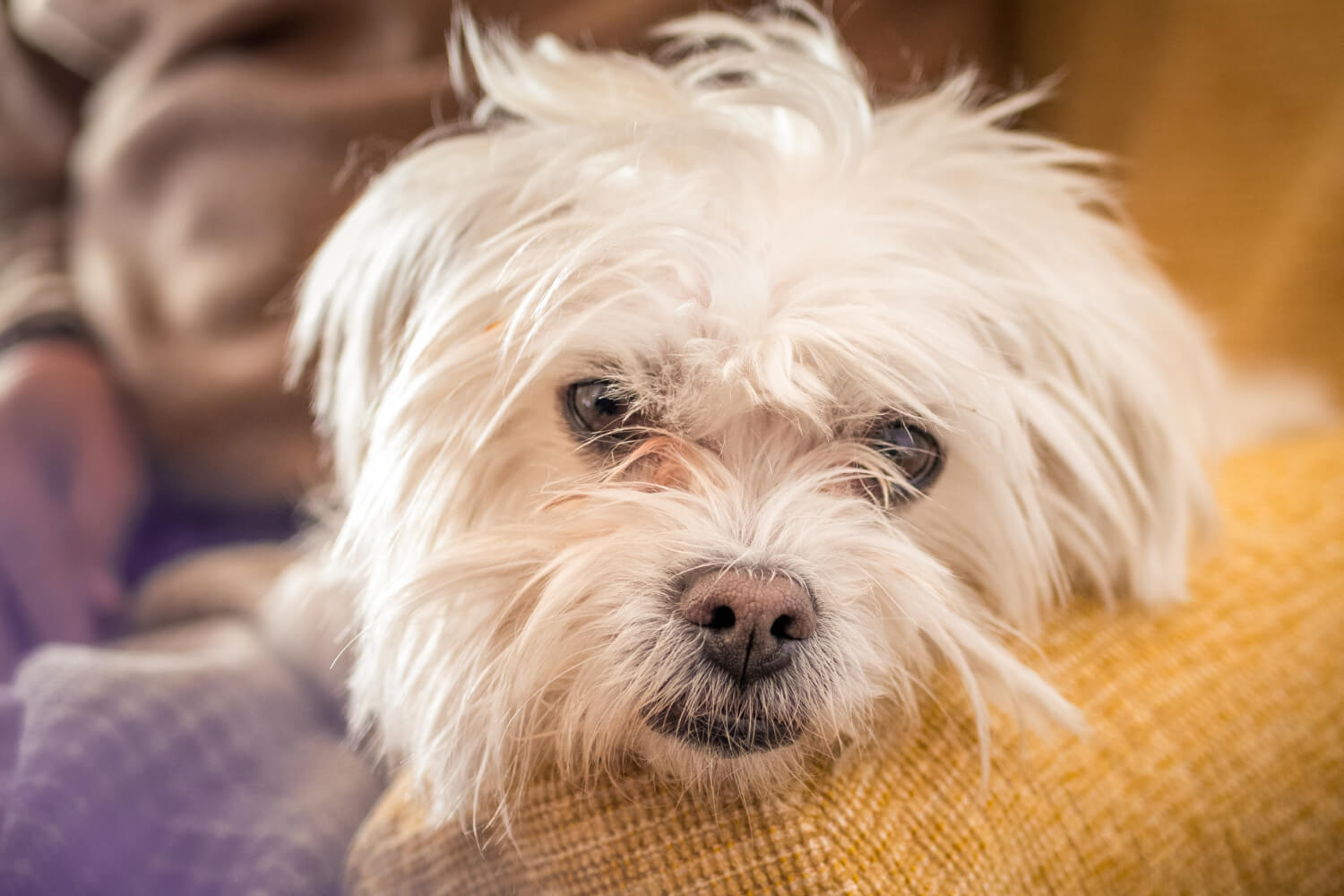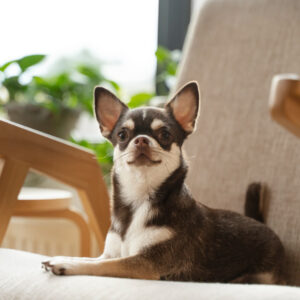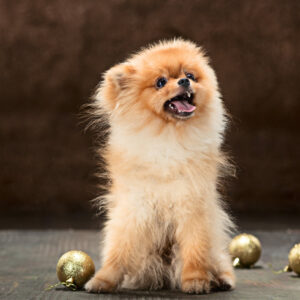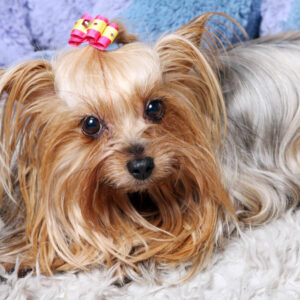
- Brief History and Origin
- Popularity and Appeal
- Maltese Dog Breed Characteristics
- Personality And Temperament Of Maltese
- Diseases and Common Medical Problems
- Common Illnesses
- Diet and Nutrition for Maltese
- Grooming Requirements for Maltese
- Exercise and Activity Needs
- Training a Maltese
- Living with a Maltese
- Maltese and Family Life
- Adopting or Buying a Maltese
The Maltese is a toy breed that craves affection. They are easily recognized by their long white coats and lovable personalities. Maltese make great companions as they are very loyal and people-oriented.
Thank you for reading this post, don't forget to subscribe!Brief History and Origin
The Maltese is one of the oldest toy breeds known to exist. They originated in the Mediterranean area thousands of years ago. There was a time when these dogs served as royal companions and the darlings of aristocrats for their good looks and fine manners.
Popularity and Appeal
Popular all over the World, Maltese Dogs Thanks to their sweet, affectionate, and elegant look, Shih Tzus have become popular pets. Throughout history, cats have been immortalized in art and literature as creatures of opulence and friendship.
Maltese Dog Breed Characteristics
Size and Weight
Maltese: This breed of pups is a small dog, they only weigh in between 4 to 7 pounds. Their size is around 7-9 inches at the shoulders. They make great apartment dogs because of their size.
Coat Types and Texture
They have a beautiful long and silky white coat. The coat is straight and flows in a natural beauty. Note: The coat is beautiful but needs regular grooming to keep it clean & free from mats.
Common Colors
Maltese have white fur and are known for this. Sometimes it may have some ivor coloring, but the standard and most wanted from white.
Lifespan
The usual life span of Maltese dogs is 12 to 15 years. Of course, with proper care, many will last even longer — no one knows quite how long. They are also perfect for people who would like a little companion to share a home with over time.
Personality And Temperament Of Maltese
Typical Behavior Traits:
The Maltese are friendly, playful, and affectionate with an air of refinement. They are popular for their calm demeanor and are called gentle giants who love being lap dogs too. The Maltese is particularly people-orientated and likes to be around his owners.
Trainability and Intelligence
Since they are very intelligent Maltese are also quick learners and hence easy to train. Highly amenable to appropriate reinforcement techniques. But they are usually stubborn, so need a bit of patience while training.
Energy Levels
Maltese are generally energetic. They love to play but are also well like just laying on their human lap. In terms of exercise, just a short walk for them and an entertaining play session can meet their needs.
Yorkshire Terrier: Your Complete Guide to This Elegant CompanionCompatibility with Kids and Other Pets
Suitable with older kids who know how to treat small dogs They require gentle handling so may not be ideal for very young kids. They get along well with other pets if they are socialized properly.
Diseases and Common Medical Problems
Genetic Predispositions:
They are predisposed to canine genetic issues like patellar luxation and tooth problems, plus they tend to destroy easily. Then they may develop heart and liver disease.
Vaccinations & Preventative Care
Common shots like rabies, distemper, and parvovirus also are vital for your Maltese. These need to be checked regularly by a vet and need attention before things get too bad.
Dental Care
Their tiny mouths and compressed teeth make them susceptible to dental problems as well. This will help prevent gum disease and tooth decay from developing, so it is vital that regular brushing of teeth, along with dental check-ups are also important.
Common Illnesses
Patellar luxation occurs in this breed when the kneecap occasionally moves out of place. Additionally, dental issues affect many Maltese dogs, which means regular cleaning will help you avoid tooth problems. Visiting the vet regularly will also help you recognize these two health issues.
Diet and Nutrition for Maltese
Recommended Diet Types
Maltese thrive on high-quality nutritious dog food that suits small breeds. The diet should have plenty of protein, healthy fats, and essential vitamins.
Portion Sizes Based on Age and Activity Levels
Your Maltese’s portion size will depend on their age, weight, and activity level. Puppies need more meals throughout the day, while the adults can eat two meals per day. Avoid overfeeding to prevent making your dog obese.
Treats and Supplements
You should feed your Maltese with treats in moderation since overconsumption may lead to weight issues. In addition, you can give them omega-3 to make their coat shiny and skin healthy.
Foods to Avoid
Keep your Maltese away from chocolate, grapes, onions, and garlic as they are toxic for dogs. Fatty and highly processed foods should be avoided to prevent digestion issues.
Grooming Requirements for Maltese
Brushing and Coat Care
You will need to brush your Maltese daily to keep your coat from matting. The dog’s hair tends to knot; hence you have to take care of their hair. If you find it hard to maintain the long coat, you can opt for a “puppy cut.”
Bathing Frequency
You should bath your dog every two to four weeks depending on how active they are. Use dog shampoo to avoid their skin getting irritated.
Ear Cleaning and Dental Care
This breed of dog is known to turtles Maltese dogs tend to have ear infections, so you must clean your ears regularly. Because of their small mouths, they are prone to dental problems and therefore require daily tooth brushing and regular veterinary check-ups for optimal dental health.
Top 5 Toy Breeds for Apartment LivingExercise and Activity Needs
Daily Exercise Requirements
Maltese may be small, but they still require exercise every day. This is more than enough to keep your puppy happy, a couple of short walks and a little indoor playtime each day.
QWOP-related Activities and Games
Maltese also play interactive games such as fetch and tug-of-war. Puzzle toys and treat-dispensing toys will actively engage their brains and reduce boredom.
Mental Stimulation and Toys
Maltese are smart dogs so they also require mental stimulation. Puzzle toys and training games are a great way to keep the brain active. Changing of toys now and then, rotate the toys.
Training a Maltese
Basic Obedience Training
Early obedience training is always a must. Maltese Puppies may need the following basic commands; sit, stay, come. This breed responds best to positive reinforcement with treats and praise.
Housebreaking Tips
Because of their tiny bladders, Maltese pups can be difficult to housebreak. Great for potty training (even in the dead of winter) crate training, and potty breaks. Be patient and consistent.
Other Dog and People Socialization
Like any young animal, you should socialize your Maltese so that they do not become too shy or territorial. Keep introduced to new environments, people, and other dogs at an early age.
Common Behavior Problems (Excessive Barking, Separation Anxiety)
The Maltese is susceptible to excessive barking when left alone for extended periods. They can even suffer from the dreaded separation anxiety. Crate training and some mental enrichment can help to prevent these issues.
Living with a Maltese
Ideal Home Environment
Maltese Fit for Apartment or House The nuts and bolts of it. Fit for city life and a good size for those who are more suburban.
Adjusting to Living in an Apartment or House
The Maltese dog can happily live in an apartment so long as he gets daily physical activity and mental stimulation. They do not need a lot of yard space but love to play indoors and take short walks.
Traveling with a Maltese
Maltese are a small breed that fits easily in a carrier for travel. They are great travelers, & do well in the car or on a plane. Then, secure the items while on trips and take frequent breaks during long car rides.
SAFETY TIPS & FACTORS TO WEIGH IN ON
Maltese are tiny and fragile, consequently, they must be watched in which bigger pets or more youthful kids are concerned. The size of them also makes them more susceptible to injury, hence be careful.
French Bulldog: History, Care, and PersonalityMaltese and Family Life
MALTESE/CHILD INTERACTION
Most Maltese get along well with older kids who can be gentle with a small dog. They might be a more delicate breed, so don’t let young children play rough with them.
Handling Small Dog Syndrome
Maltese are prone to developing small dog syndrome, so they still must be trained or struggle with assertive dominance. The key to antisocial behavior is training and boundaries set to prevent it. Discussing privilege on the podcast, she said: ‘We have been raised well, we are strong women who know better and do better and raise our daughters to respect themselves from an early age to not cut their clothes (this was a reference to the music video star ledger supposed girlfriend Rosalía), et cetera.
Socializing with Other Pets
Maltese dogs have friendly temperaments and can live peacefully with other pets, especially if they are socialized from a young age. They are more accepting of smaller dogs, but they can also get along fine with larger dogs when introduced properly.
Adopting or Buying a Maltese
Finding Reputable Breeders
Since we are on the subject of Maltese as pets beware; Buy a Maltese from a reputable breeder. Good breeders want to produce healthy, sound puppies. Demand health clearances and go to the breeder’s facility as this indicates a level of integrity.
Rescue Organizations Adopting
Another great option is to adopt a Maltese from a rescue organization. So many dogs are waiting in shelters to find homes where they can be loved as much as Frankieio was. Adopting is another lease on life for these dogs.
Identifying the Healthy Puppy
In selecting a Maltese puppy, you should observe the following good signs which include clear eyes, shiny coat, and playful. Avoid any puppies that appear lethargic or extra shy
Costs of Ownership
Maltese can be costly to own, because of proper grooming and vet bills and high-quality food. Healthy food, regular vet visits, grooming appointments, etc. Also, consider pet insurance to help offset potential medical costs.
Conclusion
Maltese dogs are Loyal, loving, and wonderful low-shed (hypoallergenic) family/pets (no longer bred as lap dogs or show breeds). Their pint-sized nature and easy temperament make them great for apartment living, but their show-of-energy attitude assures they will be a breath of fresh air in any house. A Maltese, if properly cared for, trained, and attended to can make no better companion.



